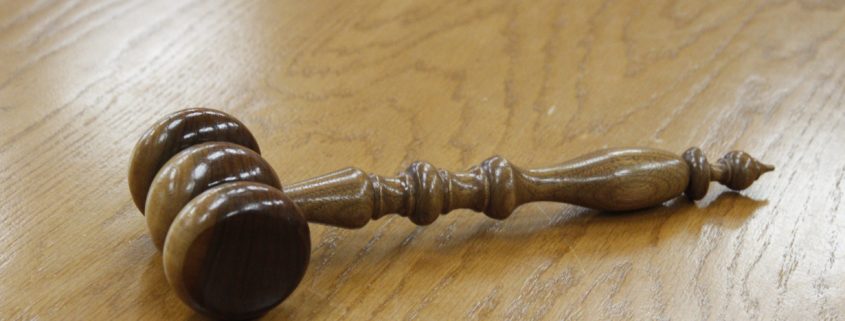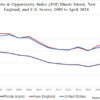Stephen Hopkins Center for Civil Rights: Media Release & Report on Rhode Island Asset Forfeiture
For Immediate Release:
May 29, 2018
Stephen Hopkins Center for Civil Rights Releases Data Brief Responding to Testimony of Office of Attorney General Kilmartin
Report of General Treasurer Showing Average forfeiture of only $1,524.00 Contradicts Rhode Island Attorney General’s Testimony Opposing Asset Forfeiture Reform Legislation
Providence – Giovanni D. Cicione, Esq., Chairman of the Stephen Hopkins Center for Civil Rights, a non-profit legal advocacy group, today released a data brief which has been transmitted to the House and Senate Judiciary Committees. This brief summarizes data regarding asset forfeitures that directly contradicts recent testimony of the office of the Attorney General made in opposition to House Bill 7640 and Senate Bill 2681, An Act Relating To Criminal Procedure – Asset Forfeiture.
Rhode Island’s civil asset forfeiture law has received a grade of “D-“ from the Institute for Justice, who produces a state by state report card on the topic. As the law works today, law enforcement can seize and keep property and cash from individuals even when they haven’t been convicted of any crime. For property to be returned, owners must prove by a preponderance of evidence that their property is not forfeitable, which is a huge burden especially for those without means to pursue such claims. Over the years, a number of states have reformed their forfeiture laws to better protect innocent individuals, while Rhode Island has lagged behind. Legislation is before the General Assembly which aims to change that.
Joe Lindbeck, lobbyist for Rhode Island Attorney General Peter Kilmartin, testified at both the House and Senate Judiciary committee hearings in opposition to legislation which would require a criminal conviction before seized assets may be forfeited. Ms. Lindbeck asserted in both hearings that the proposed reforms would serve only to protect drug cartels and drug kingpins.
The Hopkins Center reviewed data collected by the Rhode Island General Treasurer on forfeiture cases in in 2015 and 2016, which was provided to us and requested under the Rhode Island Access to Public Records Act. The Center then aggregated and analyzed that data in order to assess the realities of how the law is currently being used. The results are clear – the majority of forfeitures were for small dollar amounts, not the type of cash or property “wealthy drug lords” have on hand.
“The data speaks for itself,” noted Chairman Cicione, “but it is worth emphasizing that the median value of all 2016 forfeitures—cash and property—was less than $1,600. Over 85% of cash forfeitures involved $5,000 or less, and only 11 out of 241 cash forfeiture cases involved $10,000 or more, whereas 23 forfeitures were for $500 or less.” “The smallest amount of cash forfeited was $116, and we don’t even know if this person was convicted of any crime before his or her cash was forfeited”, continued Cicione.
“We would ask Attorney General Kilmartin to reconsider his opposition to these reforms given the hard realities of the data and their previously discussed disparate impact on communities of color,” concluded Cicione.
The mission of the Stephen Hopkins Center for Civil Rights is to protect the rights that Americans recognize as fundamental. The Hopkins Center litigates in areas of fiscal responsibility and transparency, school choice, free speech, and property rights to assist individuals the government has harmed, and ensure all Rhode islanders enjoy their constitutional rights.




Leave a Reply
Want to join the discussion?Feel free to contribute!